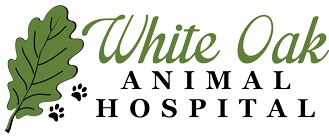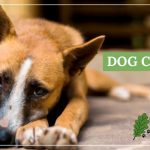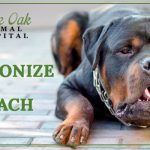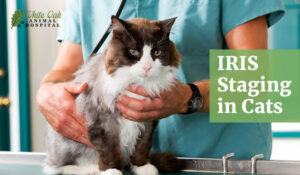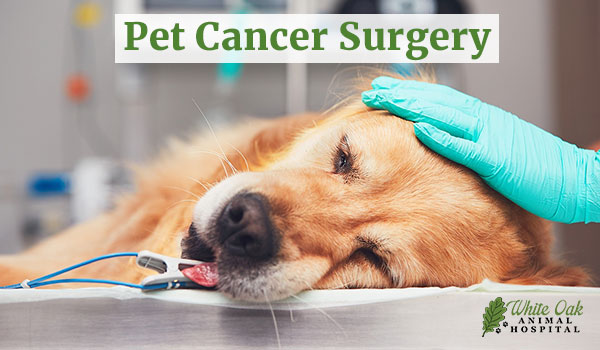
Pet cancer surgery is a crucial step in managing cancer in pets, offering hope for recovery and improved quality of life. This procedure involves removing cancerous tumors or tissues, which can alleviate symptoms and potentially extend your pet’s life. Understanding pet cancer surgery and its implications is vital for pet owners facing this challenging situation.
In this guide, we will explore everything you need to know about pet cancer surgery, from the initial preparations to the recovery process. Our focus is on ensuring your pet has the best possible outcome, with a smooth and successful recovery. We will discuss how to prepare your pet physically and emotionally, what to expect during the surgery, and how to care for your pet afterward. Additionally, we’ll highlight holistic approaches that can support your pet’s recovery, making this guide an essential resource for anyone navigating the complexities of pet cancer surgery.
Understanding Pet Cancer Surgery
What Is Pet Cancer Surgery?
Pet cancer surgery is a medical procedure aimed at removing cancerous tumors or affected tissues in pets. This surgery is often the most effective treatment for localized cancers, helping to remove the primary source of the disease. Pet cancer surgery can vary in complexity, depending on the location and size of the tumor. Common procedures include tumor excision, amputation, and organ removal when necessary.
When Is Surgery Recommended?
Surgery is recommended when a tumor is localized and can be safely removed. The decision to proceed with pet cancer surgery depends on various factors, including the tumor’s size, location, and whether the cancer has spread. Some pet owners choose to work with a veterinary oncologist in addition to their regular vet. This isn’t always necessary depending on your primary care veterinarian’s experience, but is definitely an option available to you. Veterinary oncologists work closely with your veterinarian to determine the best course of action. This collaborative approach ensures that pet cancer surgery is tailored to your pet’s specific needs, maximizing the chances of a successful outcome.
Preparing for Pet Cancer Surgery
Pre-Surgery Consultations
A thorough consultation with your veterinarian is essential before pet cancer surgery. During this consultation, discuss the risks, benefits, and expected recovery time. Understanding what to expect will help you make informed decisions and prepare for your pet’s care post-surgery.
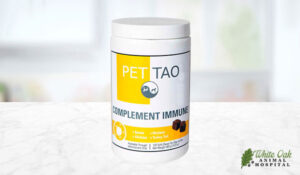 Boosting Your Pet’s Immune System
Boosting Your Pet’s Immune System
Strengthening your pet’s immune system is crucial before undergoing pet cancer surgery. Products like PET | TAO’s Complement Immune Mushroom Blend plays a significant role in boosting immunity. This blend, which includes powerful medicinal mushrooms, helps prepare your pet’s body to handle the stress of surgery and recover more effectively.
Dietary Preparations
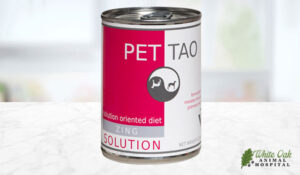 Proper nutrition is essential in the lead-up to pet cancer surgery. In Traditional Chinese Veterinary Medicine (TCVM), a Blood-building diet is particularly beneficial for pets undergoing cancer treatment. Pets, especially dogs, suffering from cancer often experience Blood deficiency, a condition that can be caused by both the cancer itself and the side effects of chemotherapy. Addressing this deficiency is crucial for ensuring that your pet has the strength needed for a successful recovery after pet cancer surgery.
Proper nutrition is essential in the lead-up to pet cancer surgery. In Traditional Chinese Veterinary Medicine (TCVM), a Blood-building diet is particularly beneficial for pets undergoing cancer treatment. Pets, especially dogs, suffering from cancer often experience Blood deficiency, a condition that can be caused by both the cancer itself and the side effects of chemotherapy. Addressing this deficiency is crucial for ensuring that your pet has the strength needed for a successful recovery after pet cancer surgery.
One effective way to support your pet’s health is by incorporating a Blood-building TCVM diet into their routine. This type of diet helps nourish and strengthen your pet’s blood, providing vital support as they prepare for pet cancer surgery. Preparing slow cooker meals using recipes specifically designed for this purpose, such as the Blood-Building Dog Food Recipe and Blood-Building Cat Food Recipe, can be particularly beneficial. Additionally, integrating PET | TAO Zing dog food into your pet’s diet can further enhance their ability to recover, by specifically targeting and alleviating Blood deficiency in line with TCVM principles.
Emotional and Physical Preparation
Preparing your pet emotionally and physically for pet cancer surgery is also important. Creating a calm and familiar environment at home can help reduce anxiety. Engage in gentle exercises as recommended by your veterinarian to maintain your pet’s physical health, which will aid in the recovery process.
What to Expect on Surgery Day
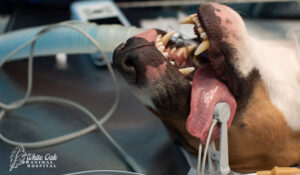 The Surgical Process
The Surgical Process
On the day of pet cancer surgery, you will begin by checking in at the veterinary clinic. The process typically starts with anesthesia to ensure your pet is comfortable and pain-free during the procedure. The surgery’s duration will depend on the complexity of the case. The veterinary team will closely monitor your pet throughout the operation, ensuring their safety and well-being.
Immediate Post-Surgery Care
Following pet cancer surgery, your pet will be moved to a recovery area where it will be monitored as it wakes from anesthesia. The veterinary team will keep a close eye on your pet to detect any immediate post-operative complications. Once your pet is stable, the vet will provide you with detailed instructions on how to care for your pet during the initial recovery period at home.
Post-Surgery Recovery: Ensuring an Amazing Recovery
First 24 Hours After Surgery
The first 24 hours after pet cancer surgery are critical. During this time, your pet may be groggy as the effects of anesthesia wear off. It’s important to keep them warm, comfortable, and hydrated. Pain management is crucial, and your vet may prescribe medications to help alleviate your pet’s discomfort during this early stage of recovery.
 Ongoing Recovery at Home
Ongoing Recovery at Home
As your pet recovers from pet cancer surgery, managing their diet is essential. PET | TAO’s Harmonize GI can help address any digestive issues that may arise post-surgery. Additionally, PET | TAO Freeze Dried Beef Spleen Treats are a great option to support recovery, as they nourish the spleen and promote overall well-being. It’s important to monitor your pet’s surgical site for signs of infection, such as redness, swelling, or discharge.
Supporting the Immune System During Recovery
To further support your pet’s recovery from pet cancer surgery, continue using immune-boosting supplements like PET | TAO’s Complement Immune Mushroom Blend. Additionally, incorporating Chinese Herbal Remedies such as Stasis Breaker, Max’s Formula, and Wei Qi Booster can provide holistic support, helping your pet heal more effectively and maintain their health.
Long-Term Care and Follow-Up
Regular Vet Visits
Regular follow-up visits to the veterinarian are essential after pet cancer surgery. These appointments allow the vet to monitor your pet’s recovery and address any complications early. Consistent check-ups are crucial to ensuring that your pet continues to recover well and remains healthy in the long term.
Maintaining a Healthy Lifestyle
 Maintaining your pet’s health after pet cancer surgery involves more than just follow-up visits. A balanced diet, regular exercise, and a stress-free environment are key to supporting your pet’s long-term recovery. Integrating Traditional Chinese Veterinary Medicine (TCVM) into your pet’s care plan can provide additional benefits, promoting overall wellness and preventing the recurrence of cancer.
Maintaining your pet’s health after pet cancer surgery involves more than just follow-up visits. A balanced diet, regular exercise, and a stress-free environment are key to supporting your pet’s long-term recovery. Integrating Traditional Chinese Veterinary Medicine (TCVM) into your pet’s care plan can provide additional benefits, promoting overall wellness and preventing the recurrence of cancer.
When it comes to integrative care options after pet cancer surgery, White Oak Animal Hospital stands out. With over 28 years of experience and the availability of TCVM Telemedicine consultations, White Oak Animal Hospital offers unique and comprehensive care options that are not available elsewhere. Their combination of conventional Chinese veterinary practices ensures that your pet receives the best possible care, tailored to their specific needs.
Frequently Asked Questions
How long does it take for a pet to recover from cancer surgery?
Recovery times can vary depending on the type of pet cancer surgery performed and your pet’s overall health. Typically, pets may take between two weeks to a few months to recover fully. It’s essential to follow your vet’s post-operative care instructions closely to ensure a smooth recovery.
What are the risks associated with pet cancer surgery?
As with any surgery, there are risks involved, including infection, bleeding, and complications from anesthesia. However, these risks are generally low when pet cancer surgery is performed by an experienced veterinary surgeon. Discussing these risks with your vet beforehand can help you make an informed decision.
Can my pet’s cancer return after surgery?
While pet cancer surgery can effectively remove cancerous tumors, there is always a possibility of recurrence, especially if the cancer has spread. Regular follow-up appointments and vigilant monitoring are crucial to detect any signs of cancer returning early.
Related Posts
-
What Are The Common Types Of Cat Cancer?
Cat cancer is an unfortunately common pet malady. Pets develop cancer for a variety of…
-
How To Identify And Treat Dog Cancer
Dog cancer is an unfortunately common malady. Common causes of dog cancer include environmental pollution,…
-
Best Herbal Remedies For Pet Vomiting
Pet vomiting can be scary when it lasts longer than a few days. Chronic pet…
-
What Every Pet Owner Should Know About Pet Allergies
Whether human or pet, allergies usually prove to be a complicated, and sometimes frustrating, topic.…
